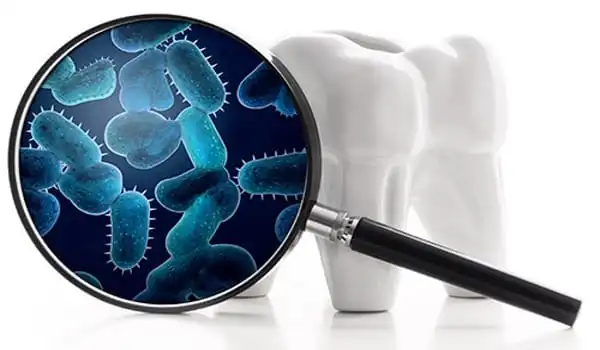Although the mouth contains a wide variety of oral bacteria, only a few specific species of bacteria are thought to cause tooth and gum infections. Researchers from the University of Louisville School of Dentistry and their colleagues have discovered how proteins produced by oral epithelial cells protect humans from viruses entering the body through the mouth. They also discovered that oral bacteria can suppress the activity of these cells, making them more susceptible to infection.
The oral bacteria Porphyromonas gingivalis reduces the production and effectiveness of interferon lambdas, a family of proteins produced by epithelial cells in the mouth to protect humans from viral infection.
“Our research found that certain pathogenic bacterial species, P. gingivalis, which causes periodontal disease, can completely suppress interferon production and significantly increase susceptibility to viral infection,” said Juhi Bagaitkar, assistant professor in the University of Louisville’s Department of Oral Immunology and Infectious Disease. “These oral plaque bacteria play an important role in regulating anti-viral responses.”
Our research found that certain pathogenic bacterial species, P. gingivalis, which causes periodontal disease, can completely suppress interferon production and significantly increase susceptibility to viral infection.
Juhi Bagaitkar
Bagaitkar and Richard Lamont, professor and chair of the UofL Department of Oral Immunology and Infectious Disease, led the study, which was co-authored by first author Carlos J. Rodriguez-Hernandez and other UofL and Washington University in St. Louis researchers. The findings were published in the journal PNAS in December.
Through a glycolytic process known as fermentation, bacteria in a person’s mouth convert glucose, fructose, and, most commonly, sucrose into acids such as lactic acid. If these acids come into contact with the tooth, they can cause demineralization, or the dissolution of its mineral content. However, the process is dynamic because remineralization can occur if the acid is neutralized by saliva or mouthwash.
Viruses that infect the gastrointestinal tract and lungs, such as SARS-CoV-2, human immunodeficiency virus (HIV), herpes simplex, and cancer-causing viruses, such as human papillomavirus, frequently enter the body through the mouth (HPV).

P. gingivalis, a common oral bacterium that causes periodontitis, has been linked to a variety of other diseases, including Alzheimer’s and rheumatoid arthritis. Immune suppression in patients with periodontitis has been shown in recent clinical studies to increase susceptibility to HIV, herpes simplex, and HPV.
Oral bacteria have evolved mechanisms to detect their surroundings and avoid or modify the host. Bacteria thrive in the ecological niches created by the tooth surface and gingival epithelium. A highly efficient innate host defense system, on the other hand, constantly monitors bacterial colonization and prevents bacterial invasion of local tissues. Dental plaque bacteria and the innate host defense system are in a dynamic equilibrium.
Improved understanding of how interferons provide broad antiviral protection and activate antiviral genes to protect people from viruses, as well as how P. gingivalis compromises that protection, may lead to clinical approaches to increase that protection.
P. gingivalis has been linked to a variety of diseases and conditions, including rheumatoid arthritis, Alzheimer’s disease, and esophageal cancer, according to research at the University of Louisville. Bagaitkar was one of the first junior faculty members whose research was supported by the National Institute of General Medical Sciences’ Center of Biomedical Research Excellence (CoBRE) for research in microorganism disease research.















